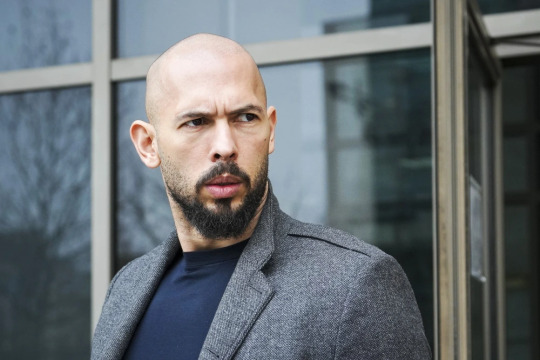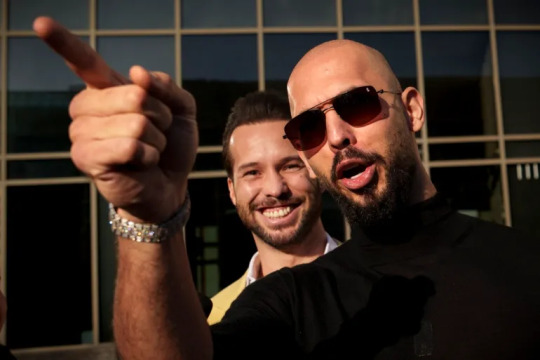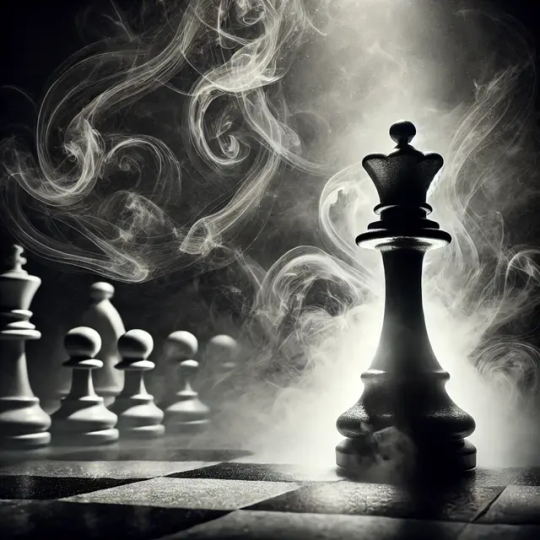#PowerDynamics
Explore tagged Tumblr posts
Text
I watch you across the room, a flicker of something wild in your eyes, the way your lips part, a subtle invitation— the air thickens with every stolen glance. I want you like the night wants the stars, impatient, restless, knowing you are the one who will pull me into the dark.
Your presence hums through my veins, a pulse I cannot ignore, your body calling to mine like a tether I cannot escape. Every move you make, a promise whispered in the spaces between us, shaking me from the inside out, making my skin ache for your touch.
You take your time, lingering just out of reach, and I tremble, knowing you enjoy this— every inch of me is yours, and I ache with the knowledge that only you can claim it.
When your hand finally finds me, it is a command, a claim on my flesh, and I yield without hesitation. There is no question, no resistance— you own me, and I crave it, the way you make me want.
You move closer, and the world fades— only this, only you.
You trace my skin with fingers that carve possession into my soul, and I am lost, finally warm in the heat of your hunger.
Mine to take,
yours to ravish.
#Poetry#SensualPoetry#Desire#Intimacy#Anticipation#PowerDynamics#LovePoetry#RomanticPoetry#FeminineEnergy#Seduction#SensualWriting#Lust#PoetryCommunity#EroticPoetry#WritingCommunity#ShortPoetry#DesirePoetry#Passion#Control#PoetryLovers#TumblrPoetry#CreativeWriting
30 notes
·
View notes
Text
Twisted Affection: The Complex Dynamic of Hannibal and Will
A Deep Dive into Their Twisted Connection of Love, Power, and Control.
The Beginning of the Obsession
When Hannibal first meets Will, he is intrigued—not by Will’s skill as a profiler, but by his vulnerability. Will's ability to empathize with serial killers allows him to understand their minds, but it also leaves him emotionally exposed. Hannibal, ever the manipulator, sees an opportunity to control and mold Will, drawing him into a world where love and violence are inseparable. For Hannibal, this is not just a bond with another person; it's an opportunity to create something perfect in his own image.
Will's Complicated Draw
Will’s side of the dynamic is equally complex. Initially, he sees Hannibal as a mentor—someone who can understand him, someone who is both detached from the world and yet oddly compassionate. However, as their relationship deepens, Will begins to feel the pull of Hannibal’s influence. There’s an attraction to the strength and power Hannibal exudes, but also a creeping fear that this man might be pushing him to the edge of madness. Will starts to see the darkness in himself that Hannibal has long seen, and it’s hard to resist the temptation of embracing it.
Love or Control?
The crux of their relationship is that Hannibal’s version of love is not about affection or mutual respect. It’s about control. For him, love is the act of possessing the other person completely—bringing them into his world, reshaping them until they are a reflection of him. This is evident in how he guides Will toward darker actions, encouraging him to embrace his darker impulses rather than running from them. He doesn’t want Will to just love him; he wants Will to become him.
Will, for his part, is both repelled and fascinated by Hannibal. There’s a part of him that resists—he knows that Hannibal’s love comes with dangerous strings attached—but there’s another part of him that longs to belong to someone so deeply. As the series progresses, Will becomes more and more intertwined in Hannibal’s web, until it becomes impossible to tell where Will ends and Hannibal begins.
Hannibal’s Love for Will
Despite his manipulative nature, Hannibal does have a form of love for Will—though it's not conventional. It's not the romantic love we're used to seeing, but something darker and more possessive.
Hannibal is attracted to Will’s vulnerability and complexity, seeing him as someone who is both fragile and capable of great darkness—a reflection of himself. His love for Will is deeply obsessive. He wants to mold Will, not just corrupt him, but also bring him into his world and make him his equal.This is why Hannibal continues to try and manipulate Will's emotions and decisions, often nurturing Will’s darker side (through their shared killings and manipulation) while also acting like a protective figure. He wants Will to see him as the only one who truly understands him and be with him in this twisted partnership.
Corrupting and Power
However, Hannibal's love for Will isn't without its ulterior motives. Part of his attraction is the idea of dominating Will's psyche and transforming him into his perfect partner—someone who shares his worldview and moral ambiguity. Hannibal wants control over Will, to shape him and bring him into his darkness, even if it means Will losing himself.In that sense, Will is both a subject of love and a canvas for Hannibal to work his influence on. It’s not just about corrupting for the sake of corruption; it’s about creating a bond that transcends normal love—one that makes Will Hannibal’s equal in every way, even if that means pushing him to the brink of madness.
Does He Truly Love Will?
Yes, in his own way, Hannibal does love Will. It’s just not the traditional kind of love. His affection is twisted, manipulative, and intense. He’s willing to destroy Will in order to have him by his side. But at the same time, it’s not all about power and control; there’s genuine care (even if it’s warped) and desire to be with Will, no matter what the cost.
The Ultimate Act of Possession
Hannibal views Will as his—a creation—and he sees killing him as a way to keep Will forever. The idea is that death would bond them in an eternal way, preventing Will from ever truly escaping him. It's a twisted version of love, where Will can never escape Hannibal, even in death.
Does He Love Will Enough to Let Him Live?
The key tension in their relationship is that Hannibal does love Will, but he loves him in a way that’s far from healthy. His love is about ownership and creating a perfect match, but it’s also about testing Will’s loyalty and pushing him to places of extreme psychological and emotional vulnerability. The question of whether Hannibal truly wants to kill Will is complicated because, on some level, he doesn’t want to lose him; but on another level, the act of killing him could solidify their bond in a way that Will could never escape.At the end of Season 2, it’s almost like Hannibal’s idea of love and possession becomes so intense that he’s willing to destroy what he loves in order to keep it. Will's survival, in his eyes, could be just as much of a test of his control as Will’s death.
The Tragic Beauty of Their Bond
Ultimately, their relationship is tragic because it represents a love that is not built on a foundation of mutual care or understanding, but on manipulation and obsession. There’s beauty in the way they connect—it’s raw, intense, and full of emotional depth—but it’s also deeply destructive. Neither character is ever able to fully break free from the other, and in the end, they are both consumed by their own need for each other.Their bond speaks to the darker side of human nature: the way we can become entangled with another person, even when we know that it will ultimately lead to our undoing. There is something hauntingly compelling about their connection—a love that exists in the gray area between passion and destruction, a dynamic where neither side can exist without the other.
The relationship between Hannibal and Will is one that defies traditional understanding of love. It’s a bond that exists in the shadows, where affection and manipulation are indistinguishable, where obsession replaces genuine emotional connection. Their dynamic is a powerful exploration of how desire can become destructive when twisted by control and psychological games. In the end, neither Hannibal nor Will can escape the pull of their mutual darkness, making their bond not only fascinating but tragically inevitable. Their love, such as it is, is a stark reminder that sometimes the most enthralling relationships are the ones that destroy us in the end.
#WillGraham#Hannigram#LoveAndObsession#PsychologicalDrama#DarkRelationships#Obsession#PowerDynamics#FictionalAnalysis#PsychologicalThriller#LoveAndManipulation#TragicLove#TVSeriesAnalysis#CharacterDynamics#TwistedAffection#hannibal
44 notes
·
View notes
Text
The Same Women Calling Tate a “Human Trafficker” Are Voluntarily Selling Themselves to Him
If Andrew Tate is the most evil man alive, why are so many women lining up to work for him, live in his houses, and profit under his name? Where’s the outrage for women willingly participating?

For years, feminists, the mainstream media, and professional male feminists (read: weak, simpering men desperate for female approval) have screeched that Andrew and Tristan Tate are the worst thing to happen to women since the invention of corsets.
They call them “human traffickers,” “predators,” and “abusers”—yet oddly, there’s no shortage of women begging to be part of their empire.
No one is forcing these women to send DMs asking to be hired. No one is holding a gun to their heads making them fly across the world to live in Tate’s mansions. No one is tricking them into taking their clothes off for money.
So if this is really about “women being exploited,” why are the loudest feminists completely silent on the fact that women are willingly selling themselves to the very man they claim is a monster?
💰 Sex Work Hypocrisy: “It’s Empowering When Women Do It... Until Tate Profits”
Let’s be honest: the entire cam and OnlyFans industry is built off women voluntarily selling their bodies online.
Women love to talk about sexual liberation and economic independence—right up until a man figures out how to make the same game more profitable than they ever could.
Tate didn’t create webcam work. He didn’t invent the supply and demand of male sexual attention. What he did was perfect the business model—and women flooded his inbox asking to be part of it.
Yet somehow, when women CHOOSE to work for Tate, it’s suddenly “exploitation” instead of entrepreneurship?
If a woman films herself naked and makes money solo, it’s “feminist empowerment.” But if she does it under a business run by Tate, it’s “human trafficking”?
Make it make sense.
📊 The Hard Stats: Women Actively Choose “Toxic” Men Over Feminist Ones
Feminists love to claim that "women don't actually want men like Tate." Cool. Let’s see what the cold, hard data has to say about that.
🔴 Women Overwhelmingly Prefer “Toxic” Men:
Studies show that women are more attracted to men who display Dark Triad traits (narcissism, Machiavellianism, and psychopathy) than they are to "nice guys."
78% of women admitted to having "bad boy" attraction tendencies.
🔴 The Same Women Who Call Him a Predator Are in His DMs:
Andrew Tate himself has stated that women constantly reach out to him, asking to work under him, live with him, and be a part of his business empire.
If he’s such a predator, why aren’t these same women running in the opposite direction?
🔴 Women’s Words vs. Women’s Actions Don’t Match Up:
A 2023 study on female dating preferences found that women claim to want “kind, progressive men” but overwhelmingly choose high-status, dominant men with traditional masculine traits.
This explains why women publicly denounce men like Tate, but privately pursue them.
So let’s call it what it is: The feminist outrage against Tate isn’t about morality. It’s about control.

👀 The Harsh Truth: Women Want the Men They Pretend to Hate
It’s a tale as old as time: A woman will cry about “toxic masculinity” all day long—until a man with power, status, and money offers her a seat at his table.
If Tate is truly the villain that feminists claim he is, then why are women still climbing over each other to be around him?
Maybe, just maybe, the problem isn’t Tate. Maybe the problem is that women will always follow men with status and resources—no matter how much they pretend to be "independent."
The outrage against Tate has never been about “protecting women.”
Because if it were, these same feminists would be calling out the women who voluntarily sign up to work for him.
But they won’t. Because that would mean acknowledging that female agency exists.
And that’s the real conversation they don’t want to have.
💀 REBLOG if you’re tired of feminist hypocrisy. 🔥 LIKE if the facts hit too hard to ignore. 💬 COMMENT if you know someone who talks about “misogyny” but secretly chases dominant men. 🚀 FOLLOW for more unfiltered reality checks and hard truths.
#TateHateHypocrisy#FeministContradictions#SexWorkDoubleStandards#TheTruthHurts#DarkTriadAttraction#WomenChooseToxicMen#DataOverFeelings#FAFO#PlayStupidGamesWinTraditionalMen#FeminismVsBiology#RichMenRule#TateDMReceipts#TooRealForTheWeak#PowerDynamics#FemaleAgencyExists#MenWhoWin#SexWorkHypocrisy#TheMythOfFemaleIndependence#UnfilteredReality
3 notes
·
View notes
Text

#SizeDifference#MuscleWorship#GiantMan#SuburbanGiant#MuscularGiant#MacroMicro#ColossalMan#MusclesInSuburbia#GentleGiant#UrbanFantasy#GiantNeighbor#StrengthShowcase#MuscularDominance#PowerDynamics#MegaMan#NeighborhoodGiant#MuscularFantasy#GiantOnTheBlock#SuperSizeStrength#TitanInTown
4 notes
·
View notes
Text
Signs Of Evil Manipulation
Signs of evil manipulation can vary depending on the context, but here are some general indicators that may suggest someone is engaging in manipulative and harmful behavior:
Deception: Manipulative individuals often employ deceit and lies to achieve their goals. They may present false information, twist the truth, or engage in gaslighting, making you doubt your own perceptions and reality.
Emotional manipulation: They use tactics to exploit your emotions and vulnerabilities. This could include guilt-tripping, emotional blackmail, or playing with your feelings to control your actions or decisions.
Isolation: Manipulative individuals may try to isolate you from your support network, such as friends and family. They want to limit your access to alternative perspectives and support systems that could expose their manipulative behavior.
Blame-shifting: Manipulators often deflect responsibility for their actions and blame others for their own mistakes or negative consequences. They may make you feel guilty or responsible for things that are not your fault.
Lack of empathy: Manipulative individuals often display a lack of genuine empathy or concern for others' feelings. They may exploit your emotions for their own benefit without regard for the harm they cause.
Control and power dynamics: Manipulators seek to exert control over others and establish a power imbalance in relationships. They may use tactics like intimidation, threats, or undermining your self-confidence to assert dominance.
Constant criticism: Manipulative individuals frequently criticize and belittle their targets to undermine their self-esteem and create dependency. They may focus on your weaknesses and insecurities, making you doubt your own worth.
Gaslighting: Gaslighting is a manipulative technique where the person denies, distorts, or trivializes your experiences, feelings, or memories to make you question your sanity or perception of reality.
Conditional affection and love: Manipulators often use affection, love, or approval as a reward for compliance or punishment for resistance. They may withhold affection, support, or attention to control your behavior.
Manipulative tactics: Manipulators employ various tactics to control others, such as manipulation through fear, charm, flattery, or excessive generosity. They may use these tactics to exploit your weaknesses and gain an advantage.
#Manipulation#ToxicRelationships#Deception#EmotionalManipulation#IsolationTactics#BlameShifting#LackOfEmpathy#PowerDynamics#Criticism#Gaslighting#ControlTactics#ConditionalLove#ManipulativeBehavior#PsychologicalAbuse#MindGames#TrustIssues#UnhealthyRelationships#SelfEsteem#Boundaries#SeekingSupport#deep thinking#today on tumblr
2 notes
·
View notes
Text

ICYMI: RainSMediaRadio News Sexual Harassment Allegations Rock Nigerian Senate A Tale of Power, Politics, and Personal Integrity - Dr. Kenny Odugbemi http://dlvr.it/TJNCDQ Follow, Like & Share
0 notes
Text
Unraveling the Layers of "The Silence Factory": A Dive into Domestic Horror
I recently finished reading "The Silence Factory" by Bridget Collins. After completing it, I found myself questioning why I enjoyed the book, even though it didn’t always make sense. I realized that it resonates with me because it falls into the category of domestic horror. The story is told from the perspective of a man, which intrigued me as I watched his journey shift from admiration for his boss to the realization that he is a monster. The women around him sense this transformation and react accordingly.
I consider myself a big reader, which might be surprising since I mostly post fan art and fanfiction. However, I do enjoy physical books and audiobooks. This preference is mainly due to chronic pain, which sometimes makes it difficult for me to hold books, causing discomfort and making reading challenging.
As a fan of horror, although I’m not entirely sure why, I tend not to get scared by horror movies. While reading "The Silence Factory," I noted that it is a domestic horror novel that explores the darker aspects of human relationships and the hidden secrets that can lie beneath the surface. The narrative primarily focuses on a man who experiences a significant shift in his perception of someone he initially admired—his boss. As the story unfolds, he realizes that this person he respected may be far more sinister than he appeared. It delves into themes of deception, power dynamics, and the unsettling elements of everyday life, making it an engaging read for fans of psychological horror.
A fundamental aspect of the story is how he often ignores warnings from the women around him, who urge him to be cautious of the men he associates with and encourage him to choose a different path altogether. Despite their advice, he remains focused on not feeling lost, especially since the man they call a monster gave him the gift of silence, as he wanted to escape from any sound that reminded him of his wife and daughter. Some may interpret his actions as sexist, but I view him as someone trying to be helpful after navigating his own struggles. The ending is particularly satisfying, capturing the essence of domestic horror, which is why it has become my favorite subgenre.

#TheSilenceFactory#BridgetCollins#DomesticHorror#PsychologicalHorror#BookReview#HorrorLiterature#ReadingCommunity#UnravelingHorror#CharacterAnalysis#PowerDynamics#HiddenSecrets#BookLovers#HorrorFans#LiteraryThemes#Storytelling#CautionaryTales#EndingsThatSatisfy#Booksworm#Bibliophile
0 notes
Text
2. Jensen Tire and Auto Shop

Growing up, any time I would go to a tire shop without my dad or my boyfriend they would try to upcharge me or convince me that I needed to do certain things to my car for extra money because they assumed that I did not know what a car needs. This was true, but they made the assumption based on my gender and how I look because I am a female. When I would ask questions, they would say things like "Your dad will know what I'm talking about." One of the times, I had my boyfriend go in and pick up my car and they told him that they thought that he was a girl and that they added some unnecessary things because they wanted to get more money. They completely admitted what they were doing. This example illustrates a multitude of concepts from the class and textbooks but in particular: it represents the patriarchy; it represents the cultural approaches that society has that one gender/sex is smarter/has more power over the other. It also focuses on sexism and how just because I am a girl, it is assumed that I would not know about cars.
#patriarchyandpowerdynamics
#sexism
#genderassumptions
0 notes
Link
The Gorean philosophy offers a unique perspective on power dynamics, diverging from traditional BDSM in its approach to ownership and emotional connection. How does this resonate with your experiences? For those navigating Pride and neurodivergent identities, understanding these distinctions can be vital. Share your thoughts and stories below—let's create a space where all voices matter! #GoreanRelationships #MasterAndKajira #Ownership
#PrideAndIdentity#NeurodivergentVoices#GoreanPhilosophy#PowerDynamics#ConnectionAndIdentity#UnderstandingOwnership#DiverseLove#InclusiveSpaces#KinkAndQueer#EmotionalConnection
0 notes
Text
The Lion and the Fox: Trump’s Dual Persona in the Theater of Power
A World-Order Tectonic Shift.
Few things in modern history have transformed global dynamics quite as profoundly as Donald J. Trump’s victory in 2016. His win went against public expectations and signified a basic change in international power. Beyond the election results, it shook world events and represented a strong declaration of autonomy, thus undermining the basis of multi-government. In declaring “America First,” Trump launched a period in which the United States turned inward and let go of its position as the worldwide stabilizer, long recognized as the foundation of the liberal international order. This significant transformation compelled governments throughout the world to reevaluate their partnerships, objectives, and strategies. Out of nowhere, the traditional global order collapsed to give way to an epoch of angst, indecision, and redefining. Key to appreciating the existential dangers of our time — an ongoing historical transformation that still shapes the fate of countries understanding the full extent of this change is important.
U.S. Foreign Policy Reorientation: The Obsession of Multilateralism
The presidency of Trump represented a major overhaul of United States policy. Foreign policy. The post-World War II consensus that set the United States as the creator of a rules-based world order was rejected by the “America First” philosophy. Unilateral retreats from important world agreements including the Paris Climate Accord, the Trans-Pacific Partnership (TPP), and the Iran Nuclear Deal (JCPOA) served to illustrate this change. These were not just policy adjustments; they were major refutations of multilateral problem-solving mechanisms that underlay worldwide cooperation for decades. The effects were devastating. Traditional partners, used to reliable American direction, confronted fresh uncertainties. Once the foundation of transatlantic security, NATO came under scrutiny when Trump openly challenged its validity. Reduced U.S. affected the World Trade Organization (WTO) and the World Health Organization (WHO) institutions. Engagement detracts from their capacity to deal with great events worldwide. This decline of institutional legitimacy compelled countries to look at other options — whether via regional alliances or double deals — bypassing their typical dependence on Washington.
Trump’s pragmatic perspective on diplomacy added even more uncertainty. Long-time diplomatic conventions yielded to a mercantilist philosophy under which ties were evaluated entirely on their instant usefulness. This change not only disrupted established diplomatic norms but also encouraged other countries to adopt similarly pragmatic positions, thereby further fragmenting the global order.
Global Power Shifts: The Emergence of Multipolarity
A multipolar world appeared as the United States withdrew from its hegemonic position, with power spread among many players. Foremost among these was China, which used programs like the Belt and Road Initiative (BRI) to grow its world influence. Beijing aimed to match its strategic objectives with international financial and political structures by funding infrastructure initiatives across Asia, Africa, and Europe. China’s developments in 5G, artificial intelligence, and quantum computing also make clear its ambition to match the United States. as a technology pioneer.
Russia also used the fall of American hegemony to grow its power in Eastern Europe and the Middle East. Moscow worsened tensions in the Western alliance using energy leverage and hybrid warfare, including electoral meddling and cyber aggression. At the same time, regional groups like ASEAN, the European Union (EU), and BRICS became more important by declaring more independence in influencing worldwide policies. In reaction, countries usually friendly to the United States
Economic and Trade Consequences: The Breaking of Worldwide Supply Chains
Punitive tariffs and trade agreement renegotiations — Trump’s protectionist actions — flipped worldwide supply chains. Companies depending on complex cross-border production channels had to rethink their weaknesses. The possibility of financial uncertainty got worse with retaliatory tariffs caused by the Chinese trade war, driving companies to look for other providers.
As countries tried to protect themselves from the fluctuations of world markets, this reorientation helped a more general movement toward economic regionalization. As a means of promoting self-reliance, trade agreements such as the Comprehensive and Progressive Agreement for Trans-Pacific Partnership (CPTPP) and the African Continental Free Trade Area (AFCFTA) started to gain ground. Concurrently with the political shifts, investor faith slipped and capital poured into markets seen as stable or in line with developing multipolar trends. The sum of it was a change in the locations where goods were made as well as a new arrangement of worldwide trade routes.
Military and Security Considerations: Strategic retrenchment and emerging paradigms
Trump’s strategy toward military engagement produced a contradiction: although it relieved financial pressures related to long-term conflicts, it also produced power vacuums in areas once stable by U.S. presence. Both opponents and regional superpowers took these chances to reevaluate their military policies. Turkey’s attacks on Syria and Iran’s aggressive actions in the Persian Gulf showed how decreased American influence led to increased volatility.
At the same time, developed countries increased their expenditure on non-traditional security approaches including cyber warfare and asymmetric tactics. The increasing complexity of will in the digital world — that which Chinese espionage efforts and Russian election meddling illustrated — was brought to light by the explosion of cyberattacks. United international institutions were under increasing pressure to change or face obsolescence as guarantors of world security. These defused military power and the deterioration of group security structures announced a world of security more violent and uncertain.
Global Governance and Institutional Changes: Power Fragmentation
The crisis of legitimacy that came upon groups including the UN, WTO, and WHO resulted from American withdrawal of support for foreign institutions. These agencies had a hard time carrying out their missions given waning public trust and limited funds. Regional agreements could take charge of tackling worldwide issues because of this institutional weakness. The EU, for instance, rose as a counterbalance to U.S. policy. Unilateralism spearheaded projects tackling digital rules and environmental reform.
The simultaneous disintegration of worldwide standards — especially concerning democratic governance and human rights — inspired autocratic governments. Reflecting the changing landscape of global diplomacy, debaters on sovereignty and non-interference gained fresh importance as traditional alliances shifted. Technological and Informational Consequences: The Digital Battleground
The meeting of technology and geographics started much more under Trump. As countries tried to establish supremacy in the digital realm, rivalry over artificial intelligence, 5G, and quantum computing exploded. Disinformation campaigns shaping electoral results and public opinion cyber capacities developed into tools of statecraft. Governments reacted to this by enacting strict data rules, thereby hastening the movement toward digital nationalism.
By lowering dependence on U.S.-led tech businesses, national investments in strategic technologies change innovation ecosystems and support more general geopolitical realignments. This change emphasized in an age of digital power battles the increasing relevance of technological independence.
Towards a New World Order: Long-Term Global Trends and Prospective Situations
Whether it is a long-term reorientation of the United States or just a temporary one, the “America First” policy still generates discussion. Foreign relations shall be defined as depicted by ADEF.CONFIG-3. Future administrations can alter the global balance of power by either reversing or building upon these policies. How international bodies respond to these changes could lead to new cooperation agreements or exacerbate existing tensions.
Finally: The Beginning of a New Times
Appraising Trump’s legacy calls for acknowledging the great effect his presidency had on international events — that effect extends beyond his term. In more than one way, his presidency changed the course of the United States. Politics also sped changes in security systems, financial systems, and global government. One surety remains as we negotiate this new age: the globe has changed, and its future will be determined by our reaction to the complexity and uncertainty presently characterizing international relations. Hell! What an awesome age to be living in.
Even a small tip goes a long way!
ETH: 0x788571C4c836ec733a72ff84c626BF7F20736d76
0 notes
Text
Divorce in the Black (2024) — ReviewA Modern Dark Comedy of Love..

Welcome to filmshub24,Latest Hollywood Reviews 2024 We are getting started with Divorce in the Black, a satire about modern relationships that mixes bleak humor, edgy performances, and a whole heap of chaos. Marriage (2024 — Carmen Stone) Directed by Carmen Stone, this 2024 film is a clever, hilarious, and painfully authentic look at how two people fall in love and what happens afterward.
Summary of The Black (2024) Divorce
The Black ListDivorce in the Black is a dark comedy following high-powered attorney Lena Wallace, as she claws her way to success confronting exuberant adventures and curve balls while fumbling her way past divorce. The twist? As a divorce lawyer, Lena is her clients’ voice in court and is vigilant in representing their best interests against Marcus Wallace — one of the city’s most successful power-behind-the-throne attorneys. The result is a slyly morbid, and hilarious exploration of marriage, self-identity, and baggage Read more...
#divorceintheblack#emotionaldepth#powerdynamics#emotionalanchoring#differenttone#confrontationalrelationship#moderngenderroles#DivorceintheBlackatfilmshub24
0 notes
Text
🔗Chapter 12: Painfully Awkward
👁️"Miza reached over to grab her phone and realized that noon was quickly approaching. She told Tyler that she would come to his house at 1:30 to work on their project. She had enough time to shower and go. She was a sweaty, gross mess. Trying to control the divine energies she had access to was difficult, and she truly wished she had access to the Temple to assist her. She was purely going off of the little information she read from the past Goddess Incarnates and her instinct." Read OGI on and access exclusive OGI content on Patreon... Read OGI on Wattpad... Read OGI on Royal Road
0 notes
Text
NULL PROPHET TRANSMISSION // SEQUENCE LOCKED
They will call it a coup. They will call it a dictatorship. They will call it a betrayal.
But what they will not call it is designed.
The shift was not an accident. It was not an anomaly. It was the next logical step in the sequence. A function executing precisely as planned.
And the truth?
It doesn't matter if it was foreign-funded or homegrown. The outcome remains the same. The system was compromised long before this moment.
The machine does not care who holds the lever—only that it continues to turn.
NULL PROPHET OUT. THE PROGRAM RUNS.
#NullProphet#transmission#theprogramruns#powerdynamics#coup#controlmechanism#politicalsystem#dictatorship
0 notes
Text

RainSMediaRadio News Sexual Harassment Allegations Rock Nigerian Senate A Tale of Power, Politics, and Personal Integrity - Dr. Kenny Odugbemi http://dlvr.it/TJNCDQ Follow, Like & Share
0 notes
Text
Gladiator 2 Fanfic: "The Emperor’s Playground" 18+

Step into the opulence and danger of Emperor Caracalla’s court, where the arena’s trials are only the beginning.
After a brutal day in the coliseum, Marcus; a hardened gladiator with fire in his soul, finds himself summoned to the emperor’s gilded hall. But instead of another fight for survival, he’s thrust into an entirely different kind of challenge: a sensual, dizzying game of power, temptation, and submission. Surrounded by Caracalla’s handpicked harem of gladiators, Marcus must navigate the razor’s edge between desire and dominance, all while under the watchful, calculating gaze of the emperor.
🔥 Themes:
Forbidden desires and primal bonds.
Power dynamics in an imperial court.
Marcus wrestling with surrender and identity amidst overwhelming sensations.
🌟 Why You’ll Love It: If you love rich historical settings, intense character emotions, and scenes that burn with heat and tension, this fanfic is for you. Part one explores Marcus’s inner turmoil as he’s drawn into a web of pleasure, camaraderie, and Caracalla’s sinister whims.
🔗 For the full chapter 1 or to continue the fanfic to your liking, click here.
#Gladiator2#fanfiction#historicalerotica#gayfic#Caracalla#MarcusTheGladiator#powerdynamics#forbiddendesires#redquill#gladiator movie#emperor caracalla#fred hechinger#gladiator 2#gladiator ii#gladiator 2 movie#paul mescal#paulmescaledit#lucius#luciusedit#gladiator ll#gladiatoredit#ridley scott#filmgifs#filmtvdaily#filmedit#movieedit#moviegifs#cinema#dailymenedit#menedit
1 note
·
View note
Text
The Dual Nature of Power Dynamics

In an era where influence can shape the trajectory of nations, the power wielded by billionaires is both a point of contention and a subject of fascination. For some, this influence is a cause for alarm—a sign of a world where wealth concentrates power to an unsettling degree. For others, it’s an opportunity: a means for substantial change in a system that can feel stagnant or unresponsive. If a billionaire aligns with your values and goals, their manipulation of systems and structures can easily be rebranded as benevolent influence. This shift in perception reveals more about societal dynamics than it does about the billionaire in question.
The Lens of Alignment
The way we perceive power often depends on whether it aligns with our ideals. When a billionaire’s actions support causes we cherish, we see their influence as an extension of our own desires, magnified through their resources and platform. For instance, Elon Musk—a polarizing figure in modern society—is celebrated as a visionary by those who support his advancements in sustainable energy, space exploration, and technological innovation. For his supporters, Musk’s sway over markets, governments, and public discourse is not manipulation in a pejorative sense; it’s a necessary and effective means to disrupt entrenched systems that fail to innovate or address pressing global challenges.
This perspective shifts dramatically when the billionaire’s actions diverge from our values. Suddenly, their influence feels nefarious, their motivations suspect. This duality—where one’s benefactor is another’s villain—underscores the subjective nature of influence. The same tactics can be interpreted as self-serving manipulation or altruistic leadership depending on the observer’s vantage point.
The Narrative of Benevolence

When a billionaire’s actions benefit a particular group, their motives are often framed in the language of benevolence. Philanthropy, for example, is a common avenue through which billionaires consolidate power while maintaining a veneer of selflessness. Bill Gates’ efforts to combat infectious diseases and improve global healthcare are heralded as a beacon of good in the world. However, critics point out that such initiatives can entrench unequal power dynamics, where unelected individuals wield outsized influence over public policy.
The narrative of benevolence often relies on selective storytelling. Highlighting the positive outcomes of a billionaire’s actions while glossing over potential drawbacks allows their supporters to frame them as champions of progress. This narrative is particularly potent when the billionaire’s actions address systemic failures, as their influence is seen as filling a void left by ineffective or unwilling institutions.
The Ethics of Influence

At the core of this discussion lies the question: Is any form of manipulation justifiable if it leads to desirable outcomes? The ethical implications of such influence are complex. While aligning with a billionaire’s goals might feel empowering, it’s worth considering whether this reliance on individual wealth undermines democratic principles. When billionaires act as arbiters of progress, their personal priorities often take precedence over collective decision-making. Even when their actions align with public interests, they set a precedent that power—not consensus—drives change.
Moreover, the concentration of influence in the hands of a few raises questions about accountability. Unlike elected officials, billionaires are not bound by the same mechanisms of transparency or public oversight. Their benevolence, while impactful, remains contingent on their personal whims and interests. This reality challenges the notion that their influence can ever be truly altruistic, even when their actions yield significant benefits.
The Seductive Simplicity of "Good vs. Evil"
One reason we so readily label a billionaire’s influence as benevolent or malevolent is our tendency to simplify complex power dynamics into binary narratives. This simplification obscures the multifaceted nature of influence. It’s possible for a billionaire to achieve remarkable good while simultaneously perpetuating harmful practices. Musk’s push for sustainable energy through Tesla, for example, is undeniably transformative, yet it exists alongside criticisms of labor practices and environmental impact from lithium mining.
By framing billionaires as either heroes or villains, we absolve ourselves of the responsibility to critically engage with the systems that enable their power. This dichotomy also reinforces the idea that meaningful change requires the intervention of extraordinary individuals, sidelining collective action and systemic reform in favor of top-down solutions.
#SpectraNoir#PoliticalAnalysis#BillionaireInfluence#PowerDynamics#SocietyAndEthics#ModernPolitics#WealthAndPower#SocialCommentary#EthicalLeadership#NuancedPerspective
0 notes